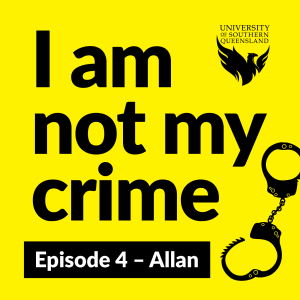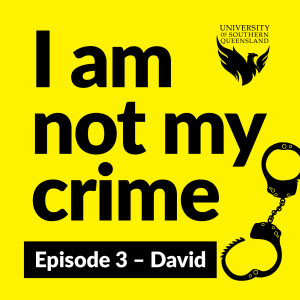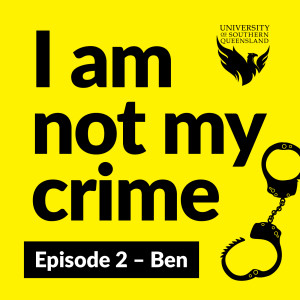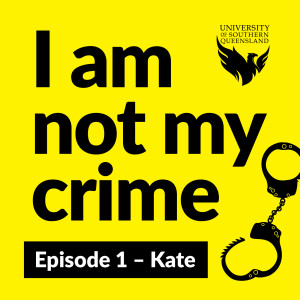Episodes

Monday Mar 29, 2021
Moodscapes - "Nostalgic" by Jess
Monday Mar 29, 2021
Monday Mar 29, 2021
Sometimes when we’re in the present moment, our minds are actually in the past! What does it mean to feel nostalgic? Jess has written a beautiful story that asks us to take a moment to reflect on the smaller things that pass us in life.
This series was created in response to the cancellation of the Empire Youth Arts IMPACT Junior Youth Ensemble, after the nationwide COVID-19 lockdown in 2020. Produced in partnership with the University of Southern Queensland, the initiative was to continue serving our communities by creating work for, with and by young people. So, whenever you’re feeling overwhelmed, frustrated, alone or nostalgic you can listen to this podcast from wherever you are to hear the thoughts these four young people have to offer.

Monday Mar 22, 2021
Moodscapes - "Alone" by Tui
Monday Mar 22, 2021
Monday Mar 22, 2021
What’s the difference between feeling alone and being lonely? Is one actually the loneliest number? Let Tui bring you along on a journey with a bunch of questions and possibly, not many answers. Enjoy poetry, mind bombs and research about loneliness from a youthful perspective.
This series was created in response to the cancellation of the Empire Youth Arts IMPACT Junior Youth Ensemble, after the nationwide COVID-19 lockdown in 2020. Produced in partnership with the University of Southern Queensland, the initiative was to continue serving our communities by creating work for, with and by young people. So, whenever you’re feeling overwhelmed, frustrated, alone or nostalgic you can listen to this podcast from wherever you are to hear the thoughts these four young people have to offer.

Monday Mar 15, 2021
Moodscapes - "Frustrated" by Joel
Monday Mar 15, 2021
Monday Mar 15, 2021
Did you ever have one of those days where just nothing went your way? Are you stuck in a crazy life loop? Come along with Joel on a wild adventure of misfortune and frustration involving expired keys, a cliff and a pogo stick! Will Joel’s frustration get the best of him?
This series was created in response to the cancellation of the Empire Youth Arts IMPACT Junior Youth Ensemble, after the nationwide COVID-19 lockdown in 2020. Produced in partnership with the University of Southern Queensland, the initiative was to continue serving our communities by creating work for, with and by young people. So, whenever you’re feeling overwhelmed, frustrated, alone or nostalgic you can listen to this podcast from wherever you are to hear the thoughts these four young people have to offer.

Monday Mar 08, 2021
Moodscapes - "Overwhelmed" by Neeve
Monday Mar 08, 2021
Monday Mar 08, 2021
Too many balls in the air?! Can’t quite get a grip on them all? Feeling overwhelmed is a pretty easy state to fall into. As much as you want and try to gain your balance, finding your equilibrium can be a challenge. Let Neeve take you on a journey to calm your thoughts and feelings to get yourself back to just “whelmed”.
This series was created in response to the cancellation of the Empire Youth Arts IMPACT Junior Youth Ensemble, after the nationwide COVID-19 lockdown in 2020. Produced in partnership with the University of Southern Queensland, the initiative was to continue serving our communities by creating work for, with and by young people. So, whenever you’re feeling overwhelmed, frustrated, alone or nostalgic you can listen to this podcast from wherever you are to hear the thoughts these four young people have to offer.

Tuesday Feb 16, 2021
I Am Not My Crime - Allan
Tuesday Feb 16, 2021
Tuesday Feb 16, 2021
As a child, Allan didn’t really belong. By about nine years of age, strong feelings of bitterness and anger were beginning to show, and by twelve he had already determined that one day he would kill someone. All through Allan’s story there is a recurring theme of faith. Allan grew up in a Christian family and despite his years of waywardness, Allan attributes the change in his life and his story of redemption to God having bigger plans for him.
"I Am Not My Crime" features courageous people telling you the story about the crimes they have committed and their journey to redemption. As you make your way through this first season you will notice a couple of common themes: the importance of other people, opportunities for employment, and being welcomed back into society are what really matter for supporting change and a life lived differently. "I Am Not My Crime" has been produced to help you understand that for many people it is their circumstances that led them down the path to offending behaviour and that what somebody has done in the past is not an indication of who they are today.
Presented by University of Southern Queensland Criminologist Dr Suzanne Reich, each episode concludes with the latest research about why people commit the crime or crimes that have been discussed.
If this episode has brought up any issues, and you need to talk to someone, you can contact Lifeline on 13 11 14, Alcoholics Anonymous on 1300 22 22 22, or Narcotics Anonymous on 1300 652 820. And blokes, if you think you might need help with anxiety, stress, depression or anger, you can speak with a counsellor from MensLine Australia on 1300 78 99 78.
Explore the University of Southern Queensland's Criminology and Criminal Justice degrees: Criminology and Criminal Justice - University of Southern Queensland (usq.edu.au)
REFERENCES:
Maruna, S. (2001). Making good: How ex-convicts reform and rebuild their lives. Washington, EC: American Psychological Association.
Hallet, M., & McCoy, J. S. (2014). Religiously motivated desistance: An exploratory study. International Journal of Offender Therapy and Comparative Criminology, 59(8). doi:10.1177/0306624X14522112

Tuesday Feb 09, 2021
I Am Not My Crime - David
Tuesday Feb 09, 2021
Tuesday Feb 09, 2021
In the rough neighbourhoods of Sydney, exposure to drugs and violence early in life was not out of the ordinary and involvement in criminal activity with peers provided David with a place to belong. After a few stints in juvenile detention for robbery, car thefts and drug related crime, David and his co-offenders committed one of the most serious crimes. Despite being charged and convicted of murder, David’s life has changed for the better. As you listen, you will notice that David attributes his change to a new perspective of himself, education, building relationships with good influences, and finding a purpose in life.
"I Am Not My Crime" features courageous people telling you the story about the crimes they have committed and their journey to redemption. As you make your way through this first season you will notice a couple of common themes: the importance of other people, opportunities for employment, and being welcomed back into society are what really matter for supporting change and a life lived differently. "I Am Not My Crime" has been produced to help you understand that for many people it is their circumstances that led them down the path to offending behaviour and that what somebody has done in the past is not an indication of who they are today.
Presented by University of Southern Queensland Criminologist Dr Suzanne Reich, each episode concludes with the latest research about why people commit the crime or crimes that have been discussed.
If this episode brings up any issues, and you need to talk to someone, you can contact Lifeline on 13 11 14, Alcoholics Anonymous on 1300 22 22 22, or Narcotics Anonymous on 1300 652 820. And blokes, if you think you might need help with anxiety, stress, depression or anger, you can speak with a counsellor from MensLine Australia on 1300 78 99 78.
Explore the University of Southern Queensland's Criminology and Criminal Justice degrees: Criminology and Criminal Justice - University of Southern Queensland (usq.edu.au)
REFERENCES
Costello, B. J., & Laub, J. H. (2019). Social control theory: The legacy of Travis Hirschi’s Causes of Delinquency. Annual Review of Criminology, 3:21-41. https://doi.org/10.1146/annurev-criminol-011419-041527
Hernandez, K. A., Ferguson, S., & Kennedy, T. D. (2020). Juvenile homicide offenders: Classifications/typologies. In K. A. Hernandez, S. Ferguson, & T. D. Kennedy. A closer look at juvenile homicide: Kids who kill, (pp. 7-17). Florida, USA: SpringerBriefs in Psychology.
Richards, K. (2011). What makes juvenile offenders different from adult offenders? Trends & issues in crime and criminal justice no. 409. Canberra: Australian Institute of Criminology. Retrieved from https://www.aic.gov.au/publications/tandi/tandi409

Tuesday Feb 02, 2021
I Am Not My Crime - Ben
Tuesday Feb 02, 2021
Tuesday Feb 02, 2021
Ben describes his downward spiral from social drug use, which eventually led to international drug trafficking. Through his time dealing drugs and his time in prison, Ben developed a whole range of transferrable skills, which shows that a former inmate can be very valuable to an employer.
"I Am Not My Crime" features courageous people telling you the story about the crimes they have committed and their journey to redemption. As you make your way through this first season you will notice a couple of common themes: the importance of other people, opportunities for employment, and being welcomed back into society are what really matter for supporting change and a life lived differently. "I Am Not My Crime" has been produced to help you understand that for many people it is their circumstances that led them down the path to offending behaviour and that what somebody has done in the past is not an indication of who they are today.
Presented by University of Southern Queensland Criminologist Dr Suzanne Reich, each episode concludes with the latest research about why people commit the crime or crimes that have been discussed.
If this episode brings up any issues, and you need to talk to someone, you can contact Lifeline on 13 11 14 or Narcotics Anonymous on 1300 652 820.
Explore the University of Southern Queensland's Criminology and Criminal Justice degrees: Criminology and Criminal Justice - University of Southern Queensland (usq.edu.au)
REFERENCES
Bahr, S. J, Harris, L., Fisher, J. K. & Armstrong, A. H. (2010). Successful reentry: What differentiates successful and unsuccessful parolees? International Journal of Offender Therapy and Comparative Criminology, 54(5), 667-692. https://doi.org/10.1177/0306624X09342435
Bersani, B., Laub, J. H., & Nieuwbeerta, P. (2009). Marriage and desistance from crime in the Netherlands: Do gender and socio-historical context matter. Journal of Quantitative Criminology, 25(1), 3-24. https://doi.org/ 10.1007/s10940-008-9056-4
Bushway, S. D., & Apel, R. (2012). A signaling perspective on employment-based reentry programming: Training completion as a desistance signal. Criminology & Public Policy, 11(1), 21-50.
Kirk, D. S. (2012). Residential change as a turning point in the life course of crime: Desistance or temporary cessation? Criminology, 50(2), 329-358. https://doi.org/10.1111/j.1745-9125.2011.00262.x
Laub, J. H., Nagin, D. S., & Sampson, R. J. (1998). Trajectories of change in criminal offending: Good marriages and the desistance process. American Sociological Review, 63(2), 225-238.
Laub, J. H., & Sampson, R. J. (2001). Understanding desistance from crime. In M. H. Tonry (Ed.), Crime and justice: A review of the research. Chicago: University of Chicago Press.
Maruna, S. (2001). Making good: How ex-convicts reform and rebuild their lives. Washington, EC: American Psychological Association.
Moffitt, T. E. (1993). Adolescence-limited and life-course-persistent antisocial behavior: A developmental taxonomy. Psychological Review, 100(4), 674-701.
Sampson, R. J., & Laub, J. (1993). Crime in the making: Pathways and turning points through life. Cambridge, MA: Harvard University Press.
Simpson, P. L., Guthrie, J., Lovell, M., Doyle, M., & Butler, T. (2015). Assessing the public’s views on prison and prison alternatives: Findings from public deliberation research in three Australian cities. Journal of Public Deliberation, 11(2). Retrieved from: http://www.publicdeliberation.net/jpd/vol11/iss2/art1
Uggen, C. (2000). Work as a turning point in the life course of criminals: A duration model of age, employment, and recidivism. American Sociological Review, 65, 529-546.
Uggen, C., & Staff, J. (2001). Work as a turning point for criminal offenders. Corrections Management Quarterly, 5, 1-16.

Tuesday Jan 26, 2021
I Am Not My Crime - Kate
Tuesday Jan 26, 2021
Tuesday Jan 26, 2021
Kate's escalating alcohol addiction led to the worst possible outcome. This became the catalyst for her own recovery and her pursuit in life to make good by helping others. Kate is not her real name.
"I Am Not My Crime" features courageous people telling you the story about the crimes they have committed and their journey to redemption. As you make your way through this first season you will notice a couple of common themes: the importance of other people, opportunities for employment, and being welcomed back into society are what really matter for supporting change and a life lived differently. "I Am Not My Crime" has been produced to help you understand that for many people it is their circumstances that led them down the path to offending behaviour and that what somebody has done in the past is not an indication of who they are today.
Presented by University of Southern Queensland Criminologist Dr Suzanne Reich, each episode concludes with the latest research about why people commit the crime or crimes that have been discussed.
If this episode brings up any issues, and you need to talk to someone, you can contact Lifeline on 13 11 14 or Alcoholics Anonymous on 1300 22 22 22.
Explore the University of Southern Queensland's Criminology and Criminal Justice degrees: Criminology and Criminal Justice - University of Southern Queensland (usq.edu.au)
REFERENCES
Armstrong, K. A., Watling, H., Watson, A., & Davey, J. (2017). Profile of urban vs rural drivers detected drink driving via Roadside Breath Testing (RBT) in Queensland, Australia, between 2000 and 2011. Transportation Research, Part F 47:114-121.
Klepova, O. (2018). ‘Too high’: 30% of fatal crashes in Australia are due to drink driving. Retrieved from: https://www.sbs.com.au/language/english/too-high-30-of-fatal-crashes-in-australia-are-due-to-drink-driving
National Road Safety Partnership Program. (2016). Drink Driving. Retrieved from: https://cdn-nrspp.s3.ap-southeast-2.amazonaws.com/wp-content/uploads/sites/4/2017/03/21124016/drink_driving_fs-1.pdf
Rääbus, C. (2018). Getting home from a night out when you live in regional Australia. ABC Life. Retrieved from: https://www.abc.net.au/life/partying-in-regional-australia-with-no-public-transport/10324716
Transport Accident Commission. Drinking. Driving. They’re better apart. Retrieved from: https://tac.vic.gov.au/road-safety/tac-campaigns/drink-driving
Terer, K., & Brown, R. (2014). Effective drink driving prevention and enforcement strategies: Approaches to improving practice. Trends & issues in crime and criminal justice no. 472. Canberra: Australian Institute of Criminology. Retrieved from: https://www.aic.gov.au/publications/tandi/tandi472

Thursday Nov 26, 2020
Career Insights - Imposter Syndrome
Thursday Nov 26, 2020
Thursday Nov 26, 2020

Thursday Oct 29, 2020
Career Insights - Careers in Agriculture
Thursday Oct 29, 2020
Thursday Oct 29, 2020

